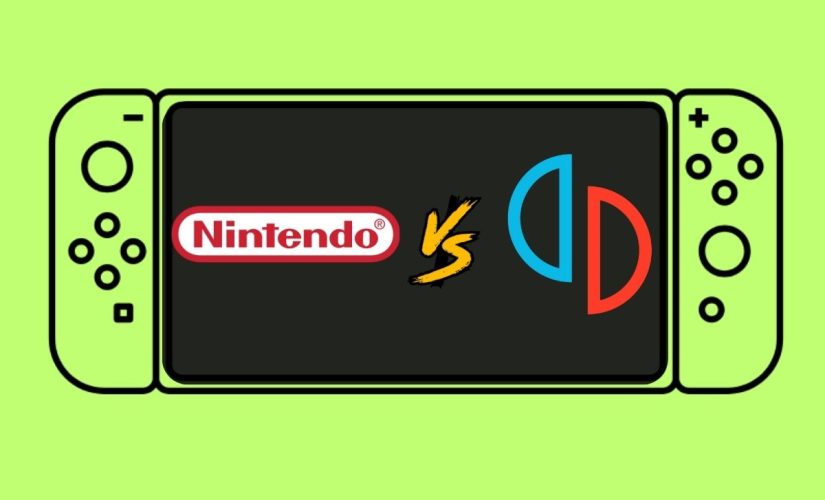Nintendo sues Switch emulator Yuzu and wants to wipe it from existence
Nintendo, a company that is certainly not afraid of a legal bill, is going after the popular Nintendo Switch emulator […] The post Nintendo sues Switch emulator Yuzu and wants to wipe it from existence appeared first on ReadWrite.


Nintendo, a company that is certainly not afraid of a legal bill, is going after the popular Nintendo Switch emulator Yuzu in a bid to eradicate all traces of the emulator from existence.
This was always going to happen after Nintendo’s The Legend of Zelda: Tears of the Kingdom leaked around eight days before release and was downloaded over a million times, largely to be played on Switch emulators Yuzu and Rjujinx. The game was playable on both long before hitting the shelves, a fact that was not lost on Nintendo, as stated in its court documents, as posted on X by Stephen Totilo.
Switch emulation is in an advanced state, and with most Nintendo Switch games leaking online around a week before release, presumably because physical copies have to be sent to stores and the like in advance of going on sale, it seems the only way Nintendo can attempt to stop the pirated flow of its games is to go for the emulators.
NEW: Nintendo is suing the creators of popular Switch emulator Yuzu, saying their tech illegally circumvents Nintendo's software encryption and facilitates piracy.
Seeks damages for alleged violations and a shutdown of the emulator. pic.twitter.com/SGZVI6Cs0x
— Stephen Totilo (@stephentotilo) February 27, 2024
Nintendo is seeking damages because the emulator circumvents encryption of the games. Emulators operate in a grey area of the law which has so far managed to win cases in court proving they are legal as, while they may facilitate piracy, they are not actually the cause – sort of like VCRs in the 80s and 90s. That is a very simplified explanation as these cases have not been re-tested for many years, but the issue for Yuzu is that, as it is not developed by a huge multinational company, it might just crumble under the weight of legal pressure, and the finances required to defend itself in a court of law.
Nintendo states in its documents that Yuzu is “facilitating piracy at a colossal scale,”
There is nothing so sure that the “internet” will kick back against this. Despite its fan base, Nintendo’s perceived heavy-handed stance around emulation and game preservation is not popular.
 An image of the Yuzu website
An image of the Yuzu websiteHere, Nintendo not only wants damages from Yuzu, but The Verge states that Nintendo also wants the Yuzu domain names, URLs, chatrooms, and social media presence as well as seizing and destroying hard drives to help wipe out the emulator.
If we know the internet, and we think we do, this is a tactic that may well end up spreading the source code far and wide in a bid to stop the corporate machine from winning the day.
Currently, the Yuzu Patreon page shows it has nearly 7,500 paid members bringing in around $25,000 per month in support, while the Compatibility page of the emulator’s homepage, where it would previously show what games worked and how well, is currently reporting a 404 Error – page not found.
Nintendo is a fierce defender of its IPs and is also looking into potential infringements in the recent hit game Palworld.
This is not the end of this story.
Featured image: Canva
Paul McNally
Gaming Editor
Paul McNally has been around consoles and computers since his parents bought him a Mattel Intellivision in 1980. He has been a prominent games journalist since the 1990s, spending over a decade as editor of popular print-based video games and computer magazines, including a market-leading PlayStation title published by IDG Media. Having spent time as Head of Communications at a professional sports club and working for high-profile charities such as the National Literacy Trust, he returned as Managing Editor in charge of large US-based technology websites in 2020. Paul has written high-end gaming content for GamePro, Official Australian PlayStation Magazine, PlayStation Pro, Amiga Action, Mega Action, ST Action, GQ, Loaded, and the The Mirror. He has also hosted panels at retro-gaming conventions and can regularly be found guesting on gaming podcasts and Twitch shows. He is obsessed with 3D printing and has worked with several major brands in the past to create content Believing that the reader deserves actually to enjoy what they are reading is a big part of Paul’s ethos when it comes to gaming journalism, elevating the sites he works on above the norm. Reach out on X.

 ValVades
ValVades 
































